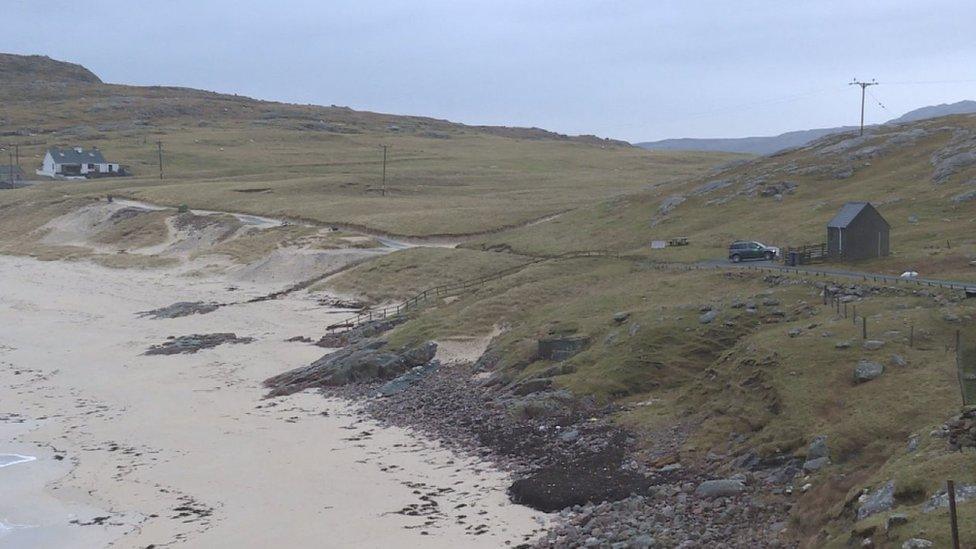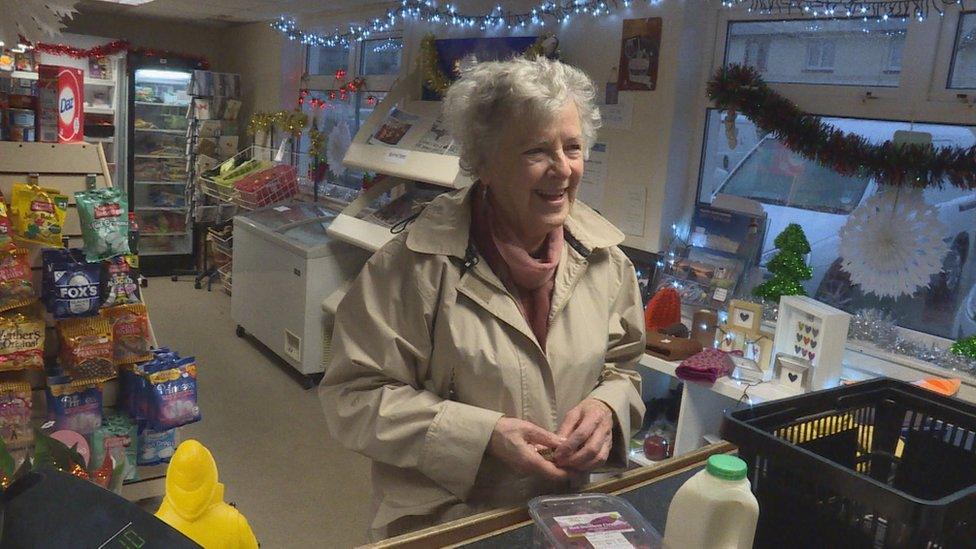Islands 'fearful' of funding commitment post-Brexit
- Published
Two thirds of the funding for the Scalpay Bridge came from Europe
Community leaders in the Western Isles say they have "little confidence" that money received from the European Union will be replaced by Westminster or Holyrood.
New research shows at least £90m has been channelled to projects in the Outer Hebrides over the past 25 years.
And that's money that local people say has been vital to support their economy.
Attitudes toward Europe have shifted massively since 70% of the electorate rejected membership of the EEC back in 1975.
In the referendum in June, 55% voted to remain.
There are few places where the European Union has transformed life as much as Scalpay.
A £6.5m bridge now connects this small island to the mainland of Harris.
Economic boost
Almost two thirds of the funding for the crossing came from Europe.
Scalpay resident Morag Macleod said: "You had to watch your time all the time, wherever you were.
"If you went to Stornoway you had to be sure to be back in time for the ferry.
"You wouldn't want to be without the bridge."

EU funding has helped pay for bridges, causeways, ports and roads
Now tourists can come and go as freely as the residents and that's boosted the economy.
The bridge opened in 1997 at a time when infrastructure was at the heart of European investment.
Bridges, causeways, ports and roads were all constructed at that time.
Scalpay's village store represents how the funding criteria has since changed.
The shop is community-owned and was bought with the aid of an EU grant to help employment and sustainable development.
Paul Finnegan, from Harris Voluntary Service, said: "It's created a hub, people are actually in the village again. They're actually meeting, they're talking, they're seeing each other."
The future
A bistro, with views across the water, has opened up alongside the shop.
Paul added: "We want to try and help expand that business which is what we are looking at doing at the moment.
"One of our avenues for funding to help the owner do that would have been European funding and now that avenue has been closed."
There seems to be little confidence that the European money for communities like Scotland's remote islands will be protected post-Brexit.

Morag Macleod said residents would not want to be without the bridge
Angus Campbell, leader of Comhairle nan Eilean Siar (Western Isles Council) said: "I really worry that a lot of that money would deal with financial issues to do with budgets either in London or in Edinburgh and would never reach us.
Some say that the islands have been benefiting less from EU funding anyway in recent years, driven by a move away from infrastructure development.
An interpretation centre in the picturesque coastal community of Huisinis has just been earmarked for a grant of £125,000.
But Alistair Macleod from the North Harris Trust says securing the money was more difficult than ever.
He said: "The competition for funding has become more difficult. There's more competition.
"We are fearful ... EU funding has got to be replaced to look after these peripheral areas by either the Scottish government or Westminster."
And he has a stark warning if the funding vanishes.
"The depopulation that's happened out in these islands - and it's happened worst in Harris than anywhere in the Outer Hebrides - will just continue to increase," he said.